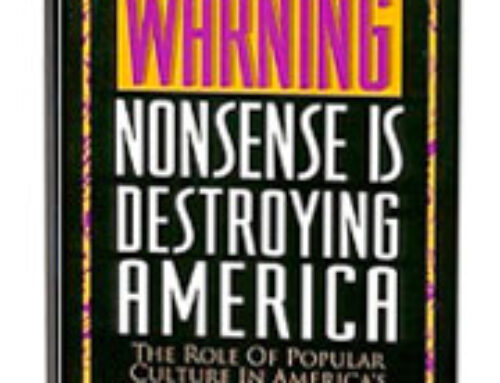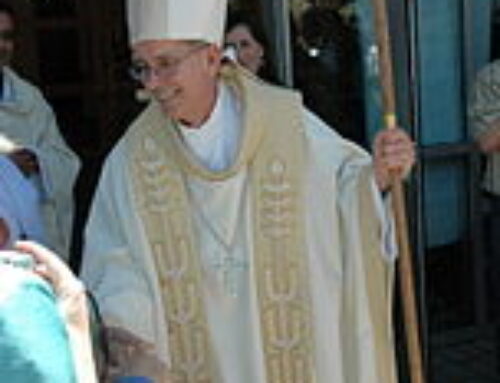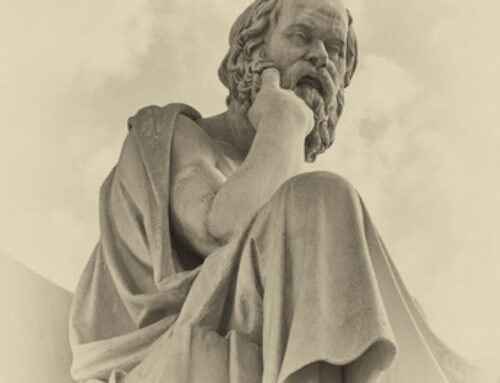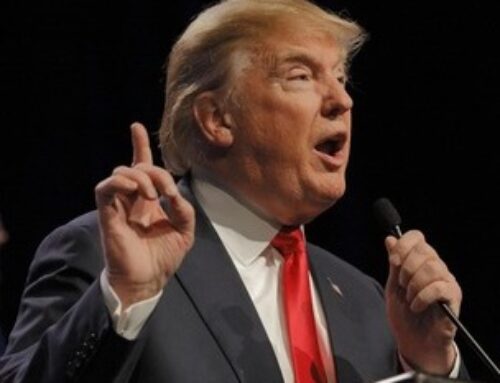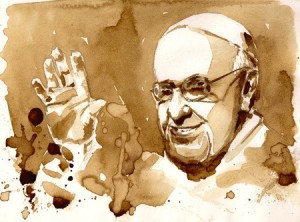 Pope Francis’ new book, Let Us Dream: The Path to a Better Future, was published on December 1, 2020. The publisher called the book, co-authored by Francis’ biographer Austen Ivereigh, “an epiphany” and “a call to arms” and noted that it “offers a brilliant, scathing critique of the systems and ideologies that conspired to produce the current crisis.” A sixteen-hundred word excerpt of the book was published in the New York Times on November 26. Based on Francis’ excerpt and an even longer critique by Associated Press reporter Nicole Winfield, I find parts of Francis’ message inspiring but other parts very troubling.
Pope Francis’ new book, Let Us Dream: The Path to a Better Future, was published on December 1, 2020. The publisher called the book, co-authored by Francis’ biographer Austen Ivereigh, “an epiphany” and “a call to arms” and noted that it “offers a brilliant, scathing critique of the systems and ideologies that conspired to produce the current crisis.” A sixteen-hundred word excerpt of the book was published in the New York Times on November 26. Based on Francis’ excerpt and an even longer critique by Associated Press reporter Nicole Winfield, I find parts of Francis’ message inspiring but other parts very troubling.
First, the inspiring parts: Francis reveals the depth of his feeling for those suffering from Covid19, as well as poverty, “the failure of a marriage or a business, [or] some great disappointment or betrayal.” He recalls his own experience with the flu as a young man and the dedication of the health care workers who cared for him. He also praises all the “saints next door” and uses their example to underscore the message we should take from our present medical crisis: “What ties us to one another is what we commonly call solidarity. Solidarity is more than acts of generosity, important as they are; it is the call to embrace the reality that we are bound by bonds of reciprocity.”
Now let’s turn to the troubling parts, which I am giving closer attention because the harm they are likely to cause outweighs the benefit of his words of inspiration I will first comment on the book excerpt in the New York Times:
Francis says: “We put on face masks to protect ourselves and others from a virus we can’t see. But what about all those other unseen viruses we need to protect ourselves from? How will we deal with the hidden pandemics of this world, the pandemics of hunger and violence and climate change?” [Emphasis added]
Comment: Hunger is pandemic for many, and violence as well. But climate change? Francis seems to be accepting the mainstream media view of climate change as a matter of simple fact and not controversial. Yet that is not the case. Many scientists reject the idea of man-made climate change. Moreover, even if that idea were so, having Europe and the United States take emergency measures to change it would accomplish nothing without the major polluters of the world, notably China, cooperating, which that country has expressed no interest in doing.
Francis says: “The pandemic has exposed the paradox that while we are more connected, we are also more divided. Feverish consumerism breaks the bonds of belonging. It causes us to focus on our self-preservation and makes us anxious. Our fears are exacerbated and exploited by a certain kind of populist politics that seeks power over society. It is hard to build a culture of encounter, in which we meet as people with a shared dignity, within a throwaway culture that regards the well-being of the elderly, the unemployed, the disabled and the unborn as peripheral to our own well-being.” [Emphasis added]
Comment: Though the reference to the throwaway culture and its negative effect on society is well taken, it has no plausible connection to “populist politics.” It is not clear what definition of the term Francis has in mind, but the accepted definition is “a political approach that strives to appeal to ordinary people who feel that their concerns are disregarded by established elite groups,” or “the quality of appealing to or being aimed at ordinary people.” Francis’ seems to have borrowed the anti-Trump movement’s definition, which has been used to pretend—without a shred of evidence—that Trump’s appeal to the masses has a dark purpose.
The following quotes from Francis’ book are from Nicole Winfield’s Associated Press critique. (Where the passage includes both her words and Francis’ words, I have put his in italics.)
Francis says: “Today, listening to some of the populist leaders we now have, I am reminded of the 1930s, when some democracies collapsed into dictatorships seemingly overnight. We see it happening again now in rallies where populist leaders excite and harangue crowds, channeling their resentments and hatreds against imagined enemies to distract from the real problems.” [Emphasis added]
Comment: Clearly, this passage is a reference to President Trump and his followers. Francis does not seem to realize that it demonizes an enormous number of people, including tens of millions of American Catholics and almost as many other followers of Christ. He is calling all of them resentful, hate-filled, and worse than that, having only imaginary reasons for their views. What basis does the Francis have for such an extravagant and demeaning assertion other than, perhaps, the mantra of CNN or MSNBC? Why did he not pause and ponder those words before committing them to paper? If he did so, he would have realized that many of the people he was maligning are as dedicated to their faith as members of the Magisterium are, in some cases perhaps more so. He would also have realized that many of those people are well-trained in Scripture and Catholic teachings, and that their views of President Trump and his followers might conceivably be not only more charitable than his, but also more accurate.
Space limitations permit only a small sample of such people’s views. Here are three of them: Legendary Notre Dame coach and devout Catholic Lou Holtz, when receiving the Medal of Freedom called President Trump “the greatest president in my lifetime.” The president of Priests for Life, Father Frank Pavone, has called him a man of “kindness, generosity, and compassion” who has achieved “historic accomplishments” for his country. (Statements such as this one are no doubt partly responsible for the U.S. bishops’ lamentable excoriation of Pavone.) Martin Luther King Jr’s niece Dr. Alveda King called Trump “one of the best presidents America has seen.” And Rabbi Harold Ten, whose ill son Trump flew across the country for medical treatment, said that Trump’s act “fulfilled the Talmudic saying that ‘he who saves one person’s life is as if he saved the entire world.”
Francis and Winfield say: “People fall prey to such rhetoric out of fear, not true religious conviction, [Francis] wrote. Such ‘superficially religious people vote for populists to protect their religious identity, unconcerned that fear and hatred of the other cannot be reconciled with the Gospel.’”
Comment: On the contrary, the vast majority of people who support President Trump, including the people of faith quoted above, do not do so because of fear or hatred but because the promises he both made and fulfilled are consistent with their religious faith. He has withdrawn American troops from foreign lands, supported Israel’s claim to Jerusalem, advanced peace between Israel and a number of Muslim countries, increased the income of working class families by $6000 annually, supported educational vouchers for poor families, appointed hundreds of pro-life judges to American courts, and donated his $400,000 annual salary to charity.
Francis is correct in noting that fear and hatred cannot be reconciled with the Gospel. But neither can judging others and focusing on the speck in others’ eyes rather than the beam in one’s own (Matt 7: 1-5). Catholics believe that in certain circumstances the Pope can speak infallibly, but they do not believe that the gift extends to divining who is and who is not “superficially religious“ and “unconcerned” about the Gospel. They know that claims such as Francis makes in this passage usually derive more from arrogance than from love of God’s Word. People of other faiths—including Dr. Alveda King and Rabbi Ten—will likely regard such claims as profoundly condescending and be at very least saddened by them.
Francis and Winfield say: “Turning to the pandemic, Francis blasted people who protested anti-virus restrictions ‘as if measures that governments must impose for the good of their people constitute some kind of political assault on autonomy or personal freedom!’”
Comment: I have no idea how extensive Francis’ training in comparative government has been, but surely it has been broad and deep enough for him to know that in Democratic Republics governmental imposition is frowned upon except in rare cases. This attitude was established in the U.S. by the events preceding the Revolutionary War and by the safeguards against tyranny provided in the Constitution. Over time it has been reinforced by observing the impact of Socialism and Communism in other lands. Recent impositions of restrictions associated with Covid19 have done nothing to change that attitude. In fact, some of those restrictions could fairly be classified in the very terms Francis uses, as “political assaults” on “autonomy or personal freedom.”
Francis and Winfield say: “[Francis] accused some in the church and Catholic media of being part of the problem. ‘You’ll never find such people protesting the death of George Floyd, or joining a demonstration because there are shantytowns where children lack water or education,’ he wrote. ‘They turned into a cultural battle what was in truth an effort to ensure the protection of life.’”
Comment: This is the kind of overstatement typically indulged in by extremists on the Left and their sycophants in the media. It is sad to witness the Holy Father descend to it. To say some Catholics and Catholic media “never” protest the death of George Floyd is categorically false—almost everyone was outraged by his violent death. What many objected to was condemning all police for one person’s crime, and transforming peaceful protesting into rioting, looting, burning down buildings, and assaulting innocent people. Moreover, those objections were both morally and legally appropriate.
Francis and Winfield say: “[Francis] praised journalists who reported on how the pandemic was affecting the poorest. But he took a broad swipe at unnamed media organizations that ‘used this crisis to persuade people that foreigners are to blame, that the coronavirus is little more than a little bout of flu, and that restrictions necessary for people’s protection amount to an unjust demand of an interfering state.’”
Comment: The hyperbole in this passage is clearly aimed at Fox News, the only organization ever criticized in this manner, mostly by its Left-leaning counterparts. That criticism is grossly unfair. Fox did not blame “foreigners” for Covid19; it merely reported, factually, that the virus originated in China. Nor did it understate the danger of the virus; it merely reported that the views of experts on its seriousness have often been conflicting and/or changing. I am disappointed that Francis chose to advance the false views of the mainstream media and ignore their silence about stories inconsistent with their preferred narrative.
Francis and Winfield say: “Francis repeated his call for a universal basic income, for welcoming migrants and for what he calls the three L’s that everyone needs: land, lodging and labor.”
Comment: Like many others in the Catholic Magisterium, Francis speaks often of welcoming others, notably the poor, the homeless, and immigrants, as Scripture does. But he generally does so without specifying what form of welcome he is speaking of. Not all forms are possible in every situation. Nor are all forms morally required. Lower income parents with many children and small living quarters may not be able to welcome the poor in the literal sense of taking them in. Similarly, poor countries with large populations may not be able to welcome immigrants into their countries. Moreover, no country, regardless of its wealth, is morally required to welcome illegal immigrants. To say this is not to deny the moral obligation of individuals and countries to practice the virtue of welcoming others, which is more precisely expressed as coming to the aid of those in need. It is to say that different situations indicate different ways of meeting that obligation.
I said earlier that I would give the troubling parts of Pope Francis’ message closer attention because the harm they are likely to cause outweighs the benefit of his words of inspiration. In subsequent paragraphs, I have identified the sources of that harm, notably Francis’ misleading or erroneous statements and uninformed, uncharitable judgments of individuals and groups. However, these elements cause even greater harm together than they do individually—they undermine the credibility of the Church at a time when it in great and in some ways unprecedented need of strengthening.
The Pope is known historically as a man of many titles, among them Holy Father, Successor of the Prince of the Apostles, Supreme Pontiff (highest priest), Vicar of Christ on Earth, and Servant of the Servants of God. These are not just terms of honor—they are, more importantly, designations of his responsibilities to God and man. That does not mean that he is synonymous with the Church or that his good or bad characteristics define it or form the basis of its Faith. It simply underscores the unique significance and and singular duties of the office.
What the Pope says affects Catholics’ confidence and trust in the Church and its teachings. Thus, when he speaks responsibly and wisely, they are comforted and encouraged in their practice of the faith. But the converse is also true. When he speaks irresponsibly or carelessly, they are disheartened and discouraged, making them feel as if Heaven itself has let them down. They want better, they need better, and it is surely God’s will that they receive better. May that will be better accomplished in the future than it is at this moment in time.
Copyright © 2020 by Vincent Ryan Ruggiero. All rights reserved
